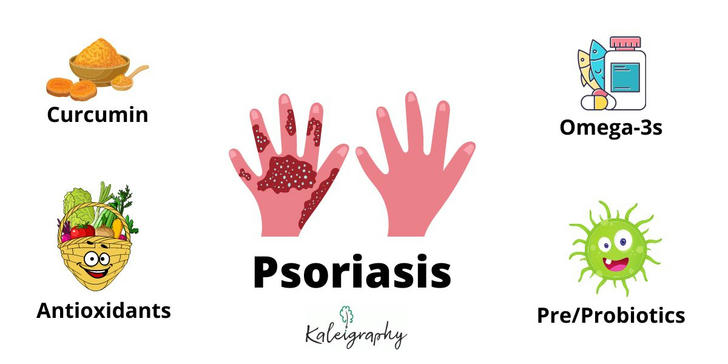The Ultimate Guide to Healthy Diet and Lifestyle for Psoriasis Patients
Plaque psoriasis is a common chronic inflammatory skin condition characterized by red, scaly patches on the skin. While the exact cause of psoriasis remains unclear, it is strongly associated with genetic, immune system, and environmental factors. For psoriasis patients, in addition to medication, adopting a healthy diet and lifestyle can significantly alleviate symptoms and improve overall quality of life. This guide offers practical dietary advice and lifestyle changes specifically tailored for psoriasis management.

Dietary Recommendations
Psoriasis patients should focus on an anti-inflammatory diet, which can reduce the inflammation that triggers flare-ups. Here's a breakdown of the best dietary choices:
a) Foods Rich in Antioxidants
Antioxidants help reduce oxidative stress in the body, which can help manage inflammation. Consider adding foods high in vitamins C, E, and beta-carotene, such as:
• Fruits: Oranges, strawberries, blueberries, lemons, grapes.
• Vegetables: Spinach, carrots, kale, sweet potatoes.
b) Omega-3 Fatty Acids
Omega-3s are well-known for their anti-inflammatory properties and may help reduce psoriasis symptoms. Good sources include:
• Fatty fish: Salmon, mackerel, tuna.
• Seeds and nuts: Flaxseeds, chia seeds, walnuts.
c) Avoid Processed Foods and Sugars
Processed foods high in sugars and unhealthy fats can promote inflammation and exacerbate psoriasis. Avoid:
• Sugary drinks, desserts, chips, and fast food.
• Refined grains such as white bread and white rice.
d) Increase Whole Grains and Fiber
Whole grains and fiber support digestive health and immune function. Recommended foods include:
• Whole wheat bread, brown rice, oats, quinoa.
e) Limit Alcohol Consumption
Excessive alcohol intake can worsen psoriasis symptoms and may interfere with some treatments. Patients should limit or avoid alcohol for better symptom management.
Lifestyle Changes
In addition to diet, healthy habits can play a crucial role in managing psoriasis. Here are some key lifestyle tips:
a) Moisturize Regularly
Dry skin can aggravate psoriasis symptoms like itching and scaling. Use a gentle, fragrance-free moisturizer daily to keep the skin hydrated, especially during colder months when the air is drier.
b) Manage Stress
Stress is a common trigger for psoriasis flare-ups. Learning stress-management techniques such as deep breathing, meditation, yoga, or other relaxation practices can help reduce the frequency of flare-ups.
c) Quit Smoking
Smoking can worsen psoriasis symptoms and weaken the immune system, potentially reducing the effectiveness of treatments. Quitting smoking is a crucial step toward better skin health and overall well-being.
d) Exercise Moderately
Regular physical activity can strengthen the immune system and help reduce inflammation. Engage in low-impact exercises like walking, swimming, or yoga, but avoid overexertion, which can have the opposite effect.
e) Maintain a Regular Sleep Schedule
Adequate sleep boosts the immune system and reduces inflammation. Establishing a consistent sleep routine with at least 7-8 hours of sleep per night can help manage psoriasis symptoms.
Real-Life Case Study
John’s Journey to Psoriasis Control
John, a 30-year-old plaque psoriasis patient, was diagnosed five years ago. Initially, he relied solely on medication, but frequent flare-ups severely impacted his work and daily life. After consulting with his doctor, John decided to complement his treatment with dietary and lifestyle changes. He eliminated processed foods, sugars, and alcohol from his diet and began incorporating omega-3-rich fish and antioxidant-packed fruits like blueberries and oranges. John also started practicing yoga weekly to relieve stress and maintained a consistent sleep schedule.
Within a few months, John noticed significant improvements in his skin condition—his plaques reduced in size, and flare-ups became less frequent. His overall quality of life improved, and he felt more relaxed. Although psoriasis is a chronic condition, John successfully managed his symptoms through these changes, eventually reducing his reliance on medication.
Conclusion
While psoriasis is a chronic condition, adopting a healthy diet and making lifestyle adjustments can help patients effectively manage their symptoms and improve their quality of life. Focusing on a diet rich in antioxidants and omega-3 fatty acids, while avoiding processed foods and sugars, is essential. Additionally, moisturizing regularly, managing stress, quitting smoking, exercising moderately, and maintaining good sleep hygiene can significantly improve outcomes. John's story demonstrates how holistic lifestyle changes can lead to better symptom control and an enhanced overall well-being for psoriasis patients.
